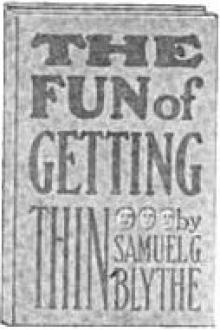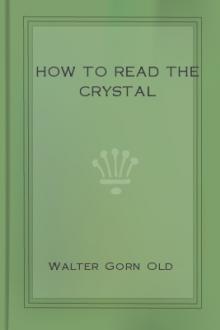Genre Literary Collections. Page - 21

arpa:myname): anonymous331 ANONYMOUS user ok, send real ident as password.Password: myname230 User ANONYMOUS logged in at Wed 17-Jun-87 12:01 PDT,job 15.ftp> get netinfo:nug.doc200 Port 18.144 at host 128.174.5.50 accepted.150 ASCII retrieve of <NETINFO>NUG.DOC.11 started.226 Transfer Completed 157675 (8) bytes transferredlocal: netinfo:nug.doc remote:netinfo:nug.doc157675 bytes in 4.5e+02 seconds (0.34 Kbytes/s)ftp> quit221 QUIT command received. Goodbye.
(Another good initial document to fetch isNETINFO:WHAT-THE-NIC-DOES.TXT)!
Questions of the NIC or problems with services can be askedof or reported to using electronic mail. The followingaddresses can be used:
[email protected] General user assistance, document requests[email protected] User registration and WHOIS updates[email protected] Hostname and domain changes and updates[email protected] S

I had the strength to toteit round and had the shoulders and the chest to conceal it. I didn'tshow any bay window, as most fat men do. As they used to say: "You'rebig all over. You carry it all right."
All this time I was eating three or four times a day and eatingeverything that came my way. Also, I drank some--not excessively, butsome whisky and some beer, and occasionally some wine andcocktails--about the average amount of drinking the average man does.I thought I was getting too fat, and I wrestled with a bicycle all onesummer, taking long rides and plugging round a good deal. I did somecenturies, but continued eating like a horse--naturally because of theoutdoor exercise--and drank a good deal of beer. As will be seen, allthe fat I had was legitimate enough. I put it on myself. There was nohereditary nonsense about it. I was responsible for every ounce of it.The net result of that summer's bicycle campaign was a gain of fivepounds in weight. I was harder--but I was fatter, too.

lations are will appear in the following pages. The passive type of seer, on the contrary, remains in statu quo, open to impressions coming inwards towards the perceptive faculty, but making no effort towards either outward or inward searching. The success of each depends upon the observance of that method which is agreeable to their respective temperaments.
In regard to the qualifications which should supplement and sustain the natural aptitude of the seer or seeress, the following remarks may be of general service.
Self-possession and confidence in one's own soul-faculties must be the firm rock upon which all revelations should rest. The purer the intention and motive of the seer, the more lucid will be the visions accorded. No reliable vision can be obtained by one whose nature is not inherently truthful. Any selfish desire dominanting the mind in regard to any thing or person will distort the visions and render them misleading, while a persistent self-seeking spirit will effectually

being preceded by looseness. At others, especially in summer, when fevers are prevailing, the dysentery begins with a severe chill, followed by fever and the dysenteric symptoms above described.
TREATMENT.
If it begins with looseness without blood, give Arsenicum and Veratrum alternately, once an hour, or oftener if the evacuations are more frequent. If the discharges are bloody, use Mercurius cor. in place of the Arsenicum. If there is any sickness of the stomach, or the discharges are dark or yellow, use Podophyllin with Mercurius cor. If there are colic pains in the bowels, use Colocynthis alternately with the others, giving it between them. If the patient was costive previous to the attack, and the dysentery came on without much looseness, Nux Vomica should be given alternately with Mercurius cor. If the disease comes on with a chill, or a chill occurs at any time during the attack, followed by fever, Aconit

to that death-in-life that is no life at all. It is the vampire that sucks out the good of us and leaves us like the rind of a squeezed-out orange; it is the cooking-process that extracts and wastes all the nutritious juices of the meat and leaves nothing but the useless and tasteless fibre.
Worry is a worse thief than the burglar or highwayman. It goes beyond the train-wrecker or the vile wretch who used to lure sailing vessels upon a treacherous shore, in its relentless heartlessness. Once it begins to control it never releases its hold unless its victim wakes up to the sure ruin that awaits him and frees himself from its bondage by making a great, continuous, and successful fight.
It steals the joy of married life, of fatherhood and motherhood; it destroys social life, club life, business life, and religious life. It robs a man of friendships and makes his days long, gloomy periods, instead of rapidly-passing epochs of joy and happiness. It throws around its victim a chilling atmosphere as do

/em>, book. Nouns are proper and common.
Proper nouns are names applied to particular persons or places.
Common nouns are names applied to a whole kind or species.
Nouns are inflected by number, gender and case.
Number is that inflection of the noun by which we indicate whether it represents one or more than one.
Gender is that inflection by which we signify whether the noun is the name of a male, a female, of an inanimate object or something which has no distinction of sex.
Case is that inflection of the noun which denotes the state of the person, place or thing represented, as the subject of an affirmation or question, the owner or possessor of something mentioned, or the object of an action or of a relation.
Thus in the example, "John tore the leaves of Sarah's book," the distinction between book which represents only one object and leaves which repres

all weak-mindedness is the direct outcome of this wool-gathering,castle-building, inattentive habit which is an extension of passivementation into useless channels of thought-force. Conscious attentionconcentrates and even specializes mental energy as the sun-glassconcentrates and intensifies the heat of the rays of the sun. Focus yourfull attention upon the thing to be done, take a keen interest in itsaccomplishment to the exclusion of all else, and you will obtainwonderful results. The man of developed, concentrative power holds in hishand the key to success, with the results that all his actions, voluntaryor involuntary, are pointed to the accomplishment of his object. Remembertherefore in conclusion:
(1) Concentration is perfect attention consciously directed to agiven point of achievement either objectively or subjectively.
(2) Concentration is consecration.
"What ever you do, do it with all your might. Do one thing at a time anddo it well." By concentration is meant the directing of

patterns may be further divided into sub-groups by means of the smaller differences existing between the patterns in the same general group. These divisions are as follows:
I. ARCH
a. Plain arch. b. Tented arch.
II. LOOP
a. Radial loop. b. Ulnar loop.
III. WHORL
a. Plain whorl. b. Central pocket loop. c. Double loop. d. Accidental whorl.
Illustrations 1 to 10 are examples of the various types of fingerprint patterns.
[Illustration: 1. Plain arch.]
[Illustration: 2. Tented arch.]
[Illustration: 3. Tented arch.]
[Illustration: 4. Loop.]
[Illustration: 5. Loop.]
[Illustration: 6. Central pocket loop.]
[Illustration: 7. Plain whorl.]
[Illustration: 8. Double loop.]
[Illustration: 9. Double loop.]
[Illustration: 10. Accidental.]
Interpretation
Before pattern definition can be understood, it is necessary

ON THE ORPHANS--LAND FOR A NEW BUILDING PURCHASED--"BUT ONE LIFE TO SPEND FOR GOD"--"SCATTERING, YET INCREASING"--A MEMORABLE YEAR--THE GERM OF THE IRISH REVIVAL--LETTER FROM AN ORPHAN--THE FRUIT OF SIX MONTHS' PRAYER--THE RESULTS OF THE WORK--REVIVAL AMONG THE ORPHANS 446
APPENDIX 473
INTRODUCTION.
What is meant by the prayer of faith? is a question which is beginning to arrest, in an unusual degree, the attention of Christians. What is the significance of the passages both in the New Testament and the Old which refer to it? What is the limit within which they may be safely received as a ground of practical reliance? Were these promises limited to prophetical or apostolical times; or have they been left as a legacy to all believers until the end shall come?
Somehow or other, these questions are seldom discussed either from the pulpit or the press. I do not remember to have heard any of them distinctly treated of in a sermon. I do not know of any work in which this subject is

mind is compelled to believe that theremust have been an Original One, that can have had no cause. This is ahard task for the Intellect, but in time it comes to see just where thetrouble lies, and ceases to interpose objections to the voice of thehigher regions of the self.
And, the Intellect experiences a similar difficulty when it tries tothink of an Eternal--a That which is above and outside of Time. We seeTime in operation everywhere, and take it for granted that Time is areality--an actual thing. But this is a mistake of the senses. There isno such thing as Time, in reality. Time exists solely in our minds. Itis merely a form of perception by which we express our consciousness ofthe Change in Things.
We cannot think of Time except in connection with a succession ofchanges of things in our consciousness--either things of the outerworld, or the passing of thought-things through our mind. A day ismerely the consciousness of the passing of the sun--an hour or minutemerely the subdivision